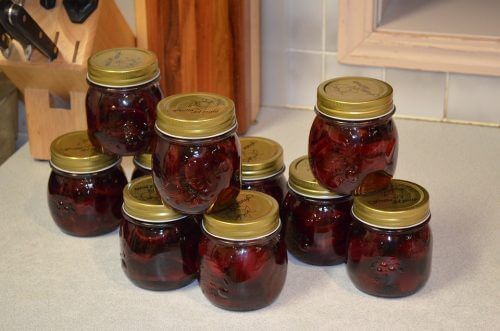The tendency of food to spoil has always necessitated the process of food preservation. Pressure canning just like any form of food preservation also ensures constant food supply. Food preservation evolved from methods like smoking and drying, and now we have canning. As you move towards modern methods, previous methods become less advantageous. Some of them cause harm to the food and ultimately human health.
For instance, smoking generates carcinogens. Pressure canning is very safe to the food and human health. Apart from that, it’s effective and inexpensive. It allows you to preserve many kinds of food especially those prone to bacterial growth. These include meats, vegetables, soups, and sauces. It is also helps to find the best pressure canner for your particular needs.

The only nutritional concern about pressure canned foods is what is added to them. Using heat and air tight containers to preserve food should be compared with cooking and other methods of preservation, not with raw food. If foods like vegetables and meat are handled and canned properly, they can be very nutritious.
Nutrients
While pressure canning may lead to nutrient loss, many experts have reported cases of increased amount of nutrients. This is based on the fact that the canning process avails more nutrients which means more nourishment. Raw vegetables tend to release more antioxidants when heat is applied. Some foods like pressure-canned corn are found to deliver the same amount of fiber as fresh ones. Extended heating also improves the availability of antioxidants in corn. Carotenoids which are found in pumpkin are more available after heating and canning processes. Pressure canning also increases iron, calcium, magnesium and vitamin K in pumpkins. Heat preservation of tomatoes releases lycopene which helps in preventing prostate and breast cancer.
Comparative Health Benefits
 -Pressure canned foods preserve nutrients more that dehydrated foods.
-Pressure canned foods preserve nutrients more that dehydrated foods.
-Canned foods with less sugar and salt are considered more nutritious than fresh produce.
-Canned foods require no freezing which allows them to retain almost all its nutrients.
-Pressure canning helps in removing bacteria in low-acid foods thus keeping away diseases as opposed to eating them raw.
-Food which is immediately canned after harvest preserves most of its vitamins compared to refrigeration of the same.
-A good number of minerals and vitamins are preserved to fresh levels.
-Pressure canned food will start loosing its vitamins at a rate of 5 to 20 percent per year which is slower compared to refrigeration or drying.
-Nutrient loss by oxidation due to freezing is not present in pressure canned foods.
Add rice to your canned vegetables for a complete healthy meal. Check out our rice cooker reviews.
Exceptions
-The heating process applied during pressure canning destroys nearly a one-third of Thiamin, Vitamin A and C and Riboflavin, but these losses slow down once the food is canned.
-Salt and sugar added for flavoring are not safe for canning when used in large quantities.
-Poor canning like too low or too high pressure can produce food which is susceptible to spoilage.
Impact of Additives
Salt and sugar used as flavorings are the main concerns when eating canned food because;
-Canning of foods like strawberry jam use these flavorings, sugar to be precise, in large quantities.
-There are many concerns regarding sugar including obesity.
-Too much salt causes high blood pressure, kidney disease, stroke and also heart disease.
Best Practices

-Pack canned food when it’s still hot to prevent air from filling up.
-Use a pressure canner and follow the manufacturer’s directions.
-Vent your canners and check the dial gauge periodically.
-Consider altitude which checking pressure and tracking time.
-Don’t force the canner to cool by opening the vent, running under cold water or removing weight.
-Sealing should be checked. If it’s faulty, the food will spoil unless refrigerated or reprocessed.
Conclusion
Disease is the most important health implication when it comes to food consumption. Pressure canning helps to remove bacteria in low-acid foods thus making it safe for consumption. It’s a fact that thermal processes of preserving food lead to mineral and nutrient loss. But storage of pressure canned foods slows down the loss in nutritional value. These foods are also tastier than food cooked using ordinary methods. They have more nutrients compared to refrigerated foods. Keeping levels of additives and canning conditions to an optimum helps to obtain nutritious food. This discussion shows that upsides of pressure canning out weigh its downsides. Therefore, its correct to say pressure canned foods are safe.
Leave a Reply